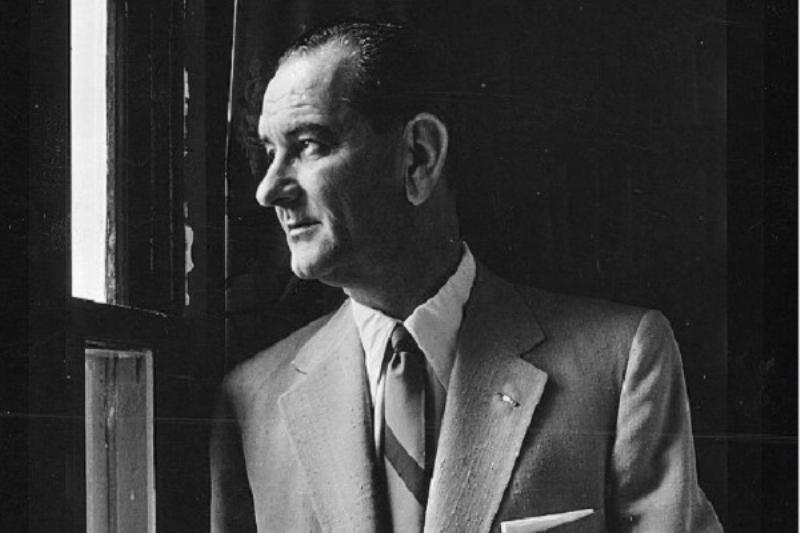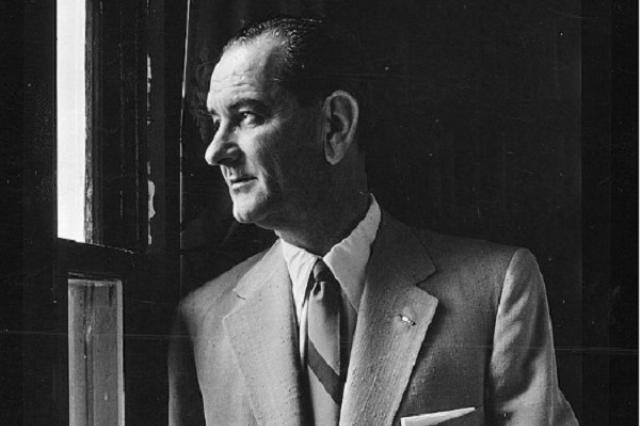


I was 8 years old when Lyndon B. Johnson became president as a result of the assassination of President John F. Kennedy. My parents were staunch Republicans, and my father was vocal about his political beliefs. These he usually expressed at the end of dinner over coffee and dessert. My mother was a patient listener, rarely expressing any opinion herself, but a bedrock of emotional endorsement. My three brothers and I were clueless about what any of it meant. We were just eager to wolf down our dessert and ask to be excused.
My father was quite the commentator — knowledgeable, articulate, often angry and loud, and as far as we kids were concerned, simply brilliant. That opinion never changed over the years because, in point of fact, my father was brilliant. He was Ivy-educated, well read, very accomplished, and a highly successful businessman who could hold his own in any political discussion. Actually, he dominated most discussions and frequently crushed any who dared take him on in a debate.
But back to the Johnson years. My father seemed always to be mad at President Johnson. It was clear he did not like the president. He rarely had a nice word to say about him. My father wasn’t an unkind man. He had a temper, sure, but he was mostly a happy dad with an often silly side. So to hear him go on, many nights, angrily denouncing this and that about the president — well, if you’re a kid, you’re thinking President Johnson must be a very bad president and a very bad man.
One afternoon, I was hanging out with my mother in our kitchen, making myself a bologna sandwich at the counter. My mother was sitting at the table behind me. I wasn’t looking at her; I was busy with my sandwich. But I got it in my head to say something to her that I thought would earn me praise. In my not yet fully developed brain, I imagined the words that were guaranteed to win my mother’s heart and, by extension, my father’s heart.
I proclaimed loudly and proudly, “I wish President Johnson was dead.”
What happened next had me reeling with shock. My mother jumped up from her seat, grabbed me by my arm, and administered a swift, hard swat on my backside that left me stinging.
“Don’t you ever say that again!” she yelled. “Don’t you ever say that about a president — or anyone. Do you hear me?”
To say I was stunned would be an understatement. Tears welled up in my eyes, though I didn’t cry. I felt my face turn bright red and my heart pound. My mother watched me as I quietly left the kitchen, slunk away to my room, and lay down to assuage my shame.
I was confused, and my confusion would last many years. Why, I thought, if you hated someone, was it wrong to wish death on him? What was so bad about saying what should have been obvious to anyone who had ever heard my father ranting at the dinner table — that he hated President Johnson and that it would be a good thing if the president no longer existed?
My parents never actually said they hated President Johnson. That was a child’s interpretation. I came to know, after many years, that my parents never hated any politician — including President Johnson. There were plenty of politicians they didn’t like, who they thought were foolish, with whom they disagreed vehemently — but hatred was not part of their emotional vocabulary.
It took me many years before I came to understand what it means to disagree with someone without hating him or wishing him harm. My father could get into a heated argument with someone that you thought would come to blows, and afterwards go have a beer with that person, joking and laughing as if they were great friends — which they often were. He had friends on the right and the left and often disagreed with people on both sides. But hatred or violence — or even a secret wish that harm might befall a political adversary? Never.
When I think of all the ugly reactions to Charlie Kirk’s death, I think of that moment in my youth and my stinging backside. I wish these people, who have so much apparent hatred for Charlie and for any conservative with whom they disagree, would have had a mother like my mother, someone who might grab them by the arm and yell, “Don’t you ever celebrate someone’s death, even someone you disagree with.”
I wish they might have the example of a father who could wrestle with you about any political topic — loudly, angrily, passionately — then afterward buy you a beer and tell you a joke.
That’s the world I grew up in. Today I long for a time when that world — a world of strong opinions, honest civility, and robust camaraderie — can be restored in our country.
Deborah Hallberg is a writer living in San Francisco.

Image via Picryl.
